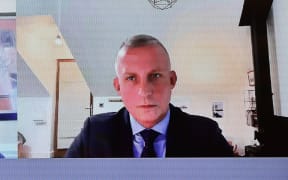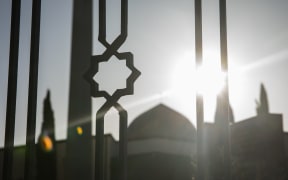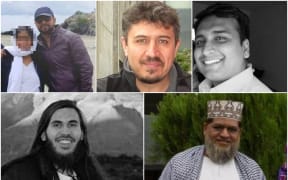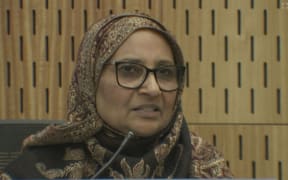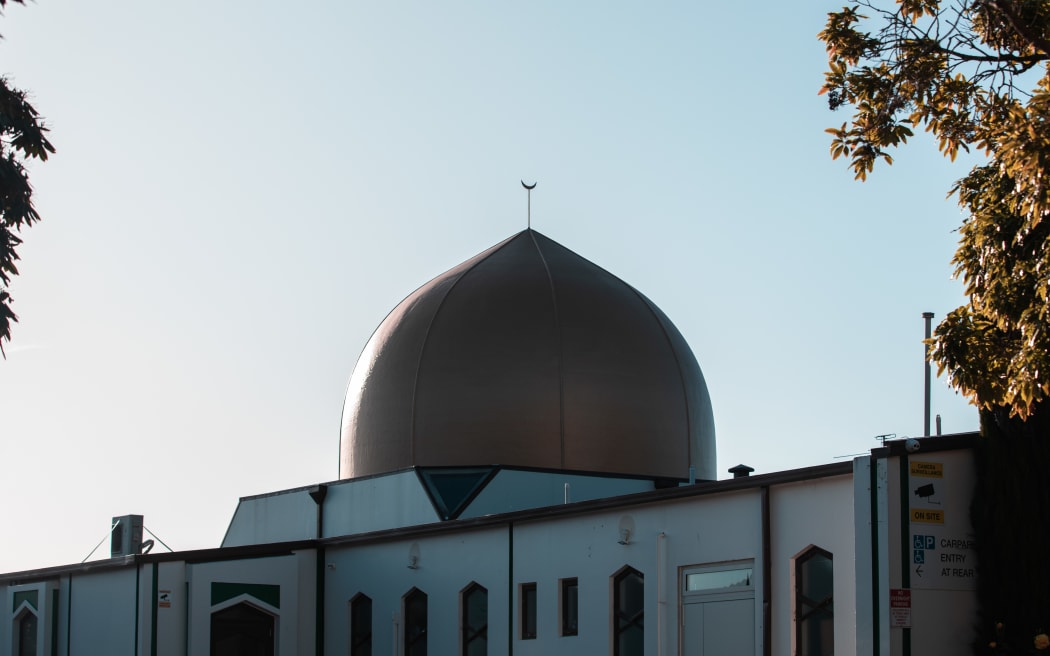
Over the next two weeks, 16 witnesses will give evidence about an emergency door at Al Noor Mosque that reportedly failed to open during the terror attacks. Photo: RNZ / Samuel Rillstone
The inquest into the deaths of 51 worshippers murdered during the 2019 Christchurch terror attacks resumes on Monday.
A terrorist stormed into Al Noor Mosque on 15 March 2019 and began shooting people shortly after Jumu'ah (the community Friday prayer) began.
He then drove about seven kilometres across the city to the Linwood Islamic Centre and opened fire outside.
Here is what you need to know as the inquest resumes.
I thought the inquest was last year - why is this happening?
This hearing will examine further evidence on whether the emergency exit door in the main prayer room at Al Noor Mosque failed to open during the attack and, if so, why.
The hearing forms part of the first phase inquest, during which Deputy Chief Coroner Brigitte Windley is examining evidence about issues directly related to the events of 15 March 2019.
The emergency exit door was one of 10 issues the coroner heard evidence on between October 24 and December 15 last year.
During those seven weeks, the inquest heard from several witnesses who provided evidence about the door and its failure to open on the day of the attack.
However, the court had foreshadowed it might not be possible to hear all evidence in relation to the door during that fixture. Further evidence, including that of expert witnesses, is required.
During last year's hearing, survivors Mohammad Siddiqui and Ahmad Alayedy, and detective senior sergeant Damon Wells said the door - which was controlled by a mechanical lock and an electric magnetic lock - failed to open.
Siddiqui and Alayedy said they attempted to unlock the door, then along with another worshipper, they kicked out the glass of its bottom pane and crawled out instead.
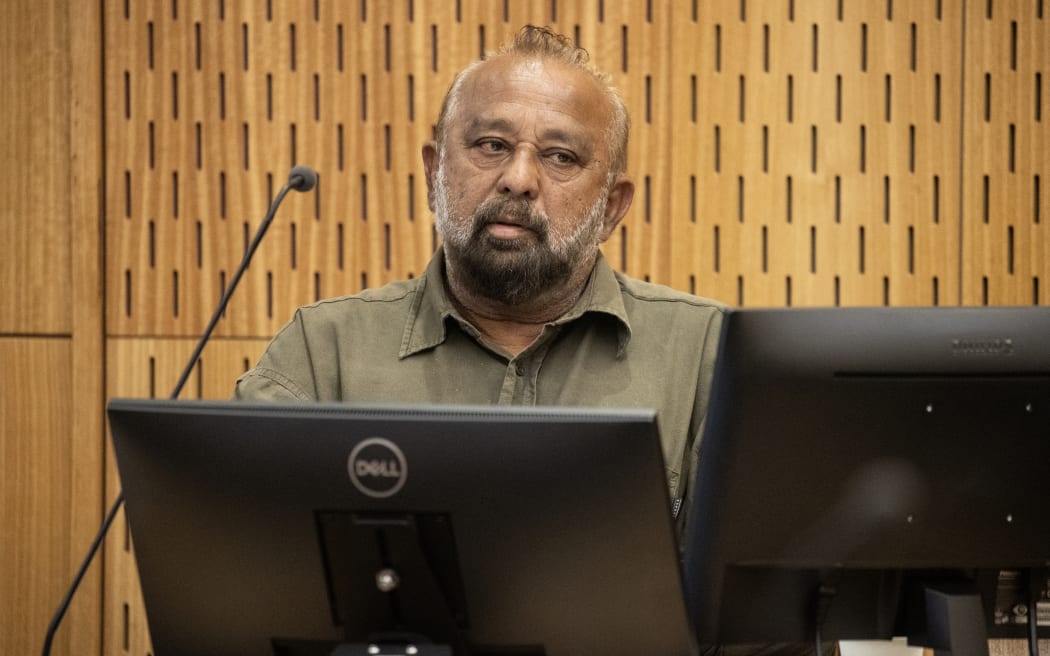
Mohammad Siddiqui giving evidence at the 2023 hearing. Photo: NZ Herald / George Heard
Wells said officers had planned on using the exit to remove victims following the attack, but were not able to.
It is understood there are questions about whether 11 of those who died at Al Noor Mosque were potentially affected by the door's failure to open.
However, had the door opened during the attack, allowing escape into the carpark, it did not necessarily mean they would have survived as other victims - including at least one who escaped through the broken glass of the emergency door - were gunned down outside the mosque.
It is expected the coroner will examine the compliance regime which applied to the door, those who held the roles and responsibilities related to it, and the installation of electro-magnetic locks, which occurred in the days before the attacks.
The failure of the door to open during the attack is not likely to be contested, which means the focus will be on why it did not open and whether the compliance regime did, or ought to have, identified any issue with the door - including its locks - at any point prior to the attack.
What has the Coroner heard so far?
In addition to evidence on the issue of Al Noor Mosque's emergency exit, the coroner also heard evidence on nine other issues:
- The events of 15 March 2019 from when the attack began until the terrorist's formal interview by police
- The response times and entry processes of police and ambulance officers at both mosques
- The triage and medical response at each mosque
- The steps that were taken to apprehend the offender
- The role of, and processes undertaken by, Christchurch Hospital in responding to the attack
- Co-ordination between emergency services and first responders
- Whether the terrorist had any assistance from any other person on 15 March 2019
- The cause of death for each of the victims and whether any deaths could have been avoided
- The final movements and time of death for the deceased (if raised by immediate family, and to the extent they could be proven).
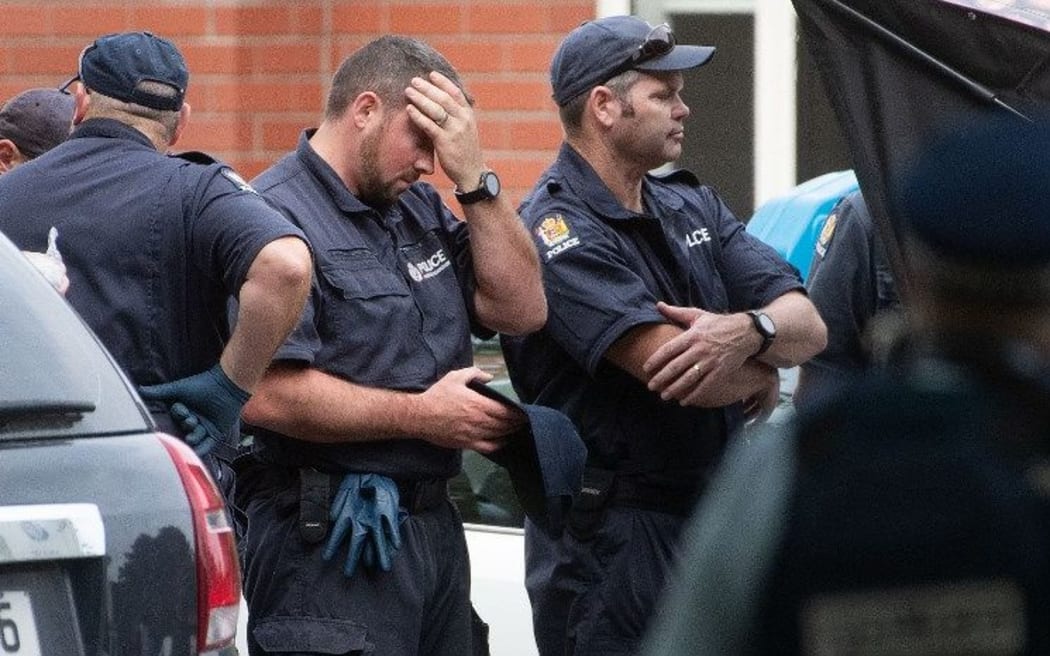
Police outside the mosque in the days after the attack. Photo: AFP
The inquest heard from dozens of witnesses over the seven weeks, who detailed the events of the shootings and the context in which they took place.
Key evidence included a police call-taker being told eight minutes before the Linwood shooting that the terrorist had singled it out in his manifesto. However, the call was not given the highest priority and was lost in the deluge of information coming to emergency services. The information did not reach frontline officers.
It took paramedics half an hour to enter Al Noor Mosque after the gunman left, and a similar time to arrive at Linwood Islamic Centre. The paramedics who entered the mosque broke St John policy to do so, as paramedics were not allowed to enter potentially dangerous scenes.
It also emerged severely injured victims were left alone in Al Noor Mosque for more than 10 minutes after an Armed Offenders Squad team, which provided initial first aid, were called to the shooting at Linwood Islamic Centre. The team thought paramedics were going in after they left. A squad commander described leaving the injured victims as the biggest mistake police made on the day.
In her closing remarks, Coroner Windley said the collective understanding of 15 March 2019 was transitioning from "darkness to light".
"The evidence we've heard in this inquest is vital to fully understanding the circumstances of the deaths, in so far as the actions or inactions of the emergency response agencies and their staff on 15 March 2019 are relevant.
"Only with that understanding is it possible to consider if the response and the inevitable care gap could be improved in the future, despite our strongest desire that a response to such an attack will never again be needed on our shores."
A lawyer for some of the victims' families, Kathryn Dalziel, said the hearings had answered questions, concerns, and contradictions her clients had held since the attack.
"Nothing can take away the pain or trauma our clients have experienced and continue to experience, but we have seen some of the pain has eased with information and hope for the future through understanding."
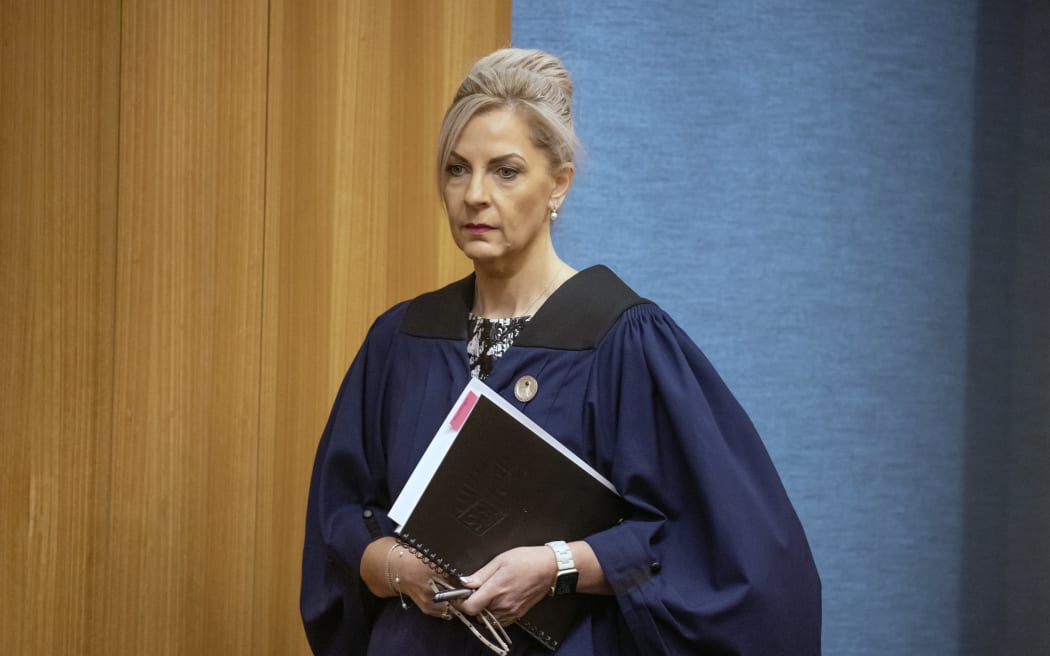
Deputy Chief Coroner Brigitte Windley is presiding over the inquest. Photo: Iain McGregor
What comes next?
This hearing is set down for the next two weeks and 16 witnesses are expected to give evidence on the locking mechanisms in place on the emergency door on 15 March 2019.
The witnesses will include survivors, other members of the Muslim community, and others who were involved with the door as part of their job or carried out repairs or remedial work.
A further hearing to allow expert witnesses to give evidence is expected later this year.
The coroner will only issue her findings on the 10 issues canvassed in the first phase inquest once she has heard all the evidence relating to the door.
There is no firm timeframe for their release.
Coroner Windley also has three remaining issues to consider following the inquiry's first phase: the firearms licensing process followed by police in issuing the terrorist his licence, whether the terrorist's online activity contributed to his radicalisation, and the community's ability to detect and respond to the risk of violent extremism in others.
An inquest relating to the firearms licensing issue has been set down for October and is expected to last four weeks.
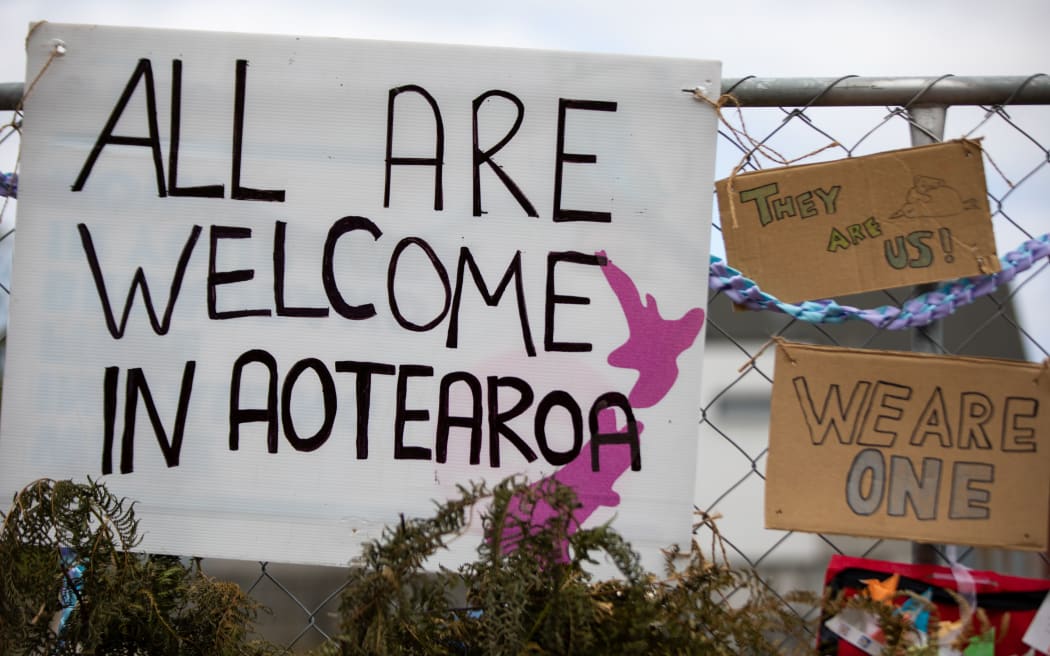
Signs left outside the mosque following the shooting. Photo: RNZ/ Dan Cook
What does a coroner do?
Police inform a coroner when someone dies unexpectedly, violently or in suspicious circumstances. If a general practitioner or doctor is unsure what caused a person's death, they will report it to the coroner as well.
The coroner can order a post-mortem and decide whether to hold an inquiry into the death.
A coroner's job is that of a truth seeker. They look at all the evidence that has been gathered and decide on the facts of the death.
A coroner can then make recommendations which aim to prevent avoidable deaths from occurring in future.
As part of their inquiry, a coroner can hold a hearing. The hearing can be held in court - an inquest where witnesses give evidence in person, or 'on the papers' - where the coroner makes a finding in their office after reading all the evidence.
The hearing does not aim to determine civil, criminal or disciplinary liability, and the coroner does not have jurisdiction to make findings on such matters. Instead, coronial inquiries are an inquisitorial process to find out the facts of a death.
While a coronial inquest is not adversarial - unlike a criminal court case, where the prosecution attempts to prove the guilt of a defendant - the fact-finding nature of the process does necessitate asking hard questions of witnesses at times, which can be challenging or uncomfortable.

